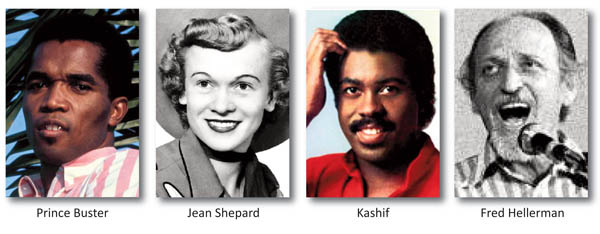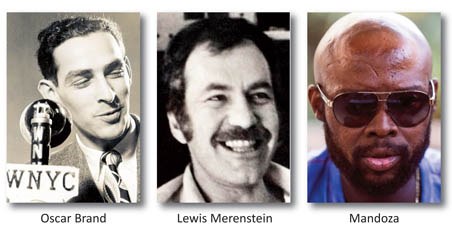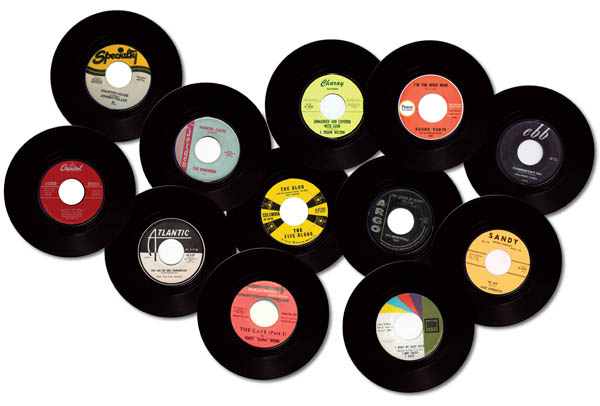 Fans of ska, and the ska revival of the late 1970s in Britain and Europe, will have been particularly saddened by the passing at the age of 78 of the king of the genre. Prince Buster, as the Jamaican musician Cecil Campbell called himself, didn’t have huge commercial success in Britain — a Top 20 hit in 1967 with Al Capone is the extent of his residency in the charts — but his influence was felt keenly. When the Two Tone label revived ska, Prince Buster was a revered godfather to the genre. The group Madness named themselves after a Prince Buster song, recorded their debut single The Prince as a tribute to him, and broke through with their sophomore single, a cover of Prince Buster’s One Step Beyond (the b-side of that solitary UK hit, Al Capone).
Fans of ska, and the ska revival of the late 1970s in Britain and Europe, will have been particularly saddened by the passing at the age of 78 of the king of the genre. Prince Buster, as the Jamaican musician Cecil Campbell called himself, didn’t have huge commercial success in Britain — a Top 20 hit in 1967 with Al Capone is the extent of his residency in the charts — but his influence was felt keenly. When the Two Tone label revived ska, Prince Buster was a revered godfather to the genre. The group Madness named themselves after a Prince Buster song, recorded their debut single The Prince as a tribute to him, and broke through with their sophomore single, a cover of Prince Buster’s One Step Beyond (the b-side of that solitary UK hit, Al Capone).
Before the 1950s there were very few successful women in country music, as explained in A History of Country Music (get the free eBook of the series). That changed in 1952 with Kitty Wells’ huge hit It Wasn’t God Who Made Honky Tonk Angels. Jean Shepard, who has died at 82, was the first female singer to follow in Wells’ slipstream in 1953 when she had a hit with Dear John, her duet with fellow Bakersfielder Ferlin Husky (both breakthrough hits, Wells’ and Shepard’s, were covers, incidentally). At 19 years old, Shepard set a record as youngest female country chart-topper until 14-year-old Tanya Tucker eclipsed her almost two decades later. Along with comedian-singer Minnie Pearl, Shepard joined Wells as one of only three female regular on the Grand Ole Opry in 1955. Last year she became the second person to have been a member of the Opry for 60 consecutive years. Shepard married twice: her first husband, fellow country singer Hawkshaw Hawkins, died in the 1963 plane crash that also killed Patsy Cline and Cowboy Copas. She remained with second husband Benny Birchfield till the end.
In the late 1970s, two soul producers were pioneers in the use of the synthesizer in their productions: Stevie Wonder and Michael Jones, the latter a former keyboard player with funk group BT Express who on his conversion to Islam took the name Kashif. A multi-instrumentalist, Kashif wrote and produced Evelyn “Champagne” King’s hit I’m In Love, produced the more soul-oriented songs on Whitney Houston’s debut LP, You Give Good Love and Thinking About You (he co-wrote the latter and sang on it, too). Along the way, he also released his own albums, scoring a sizable hit in 1987 with Love Changes, his duet with Meli’sa Morgan. Privately, Kashif set up an organization to help kids get into suitable foster care.
A couple of years ago, three of the four original members of The Weavers, the pioneers of the folk scene, were still alive. Then Pete Seeger died in 2014; followed by Ronnie Gilbert last year, and with the death on September 1 of Fred Hellerman at 89, all the Weavers are now gone (Lee Hays died in 1981; latter members Bernie Krause and Frank Hamilton ate still alive). The group’s name was the idea of Hellerman—who had been investigated already in the 1930s for his left-wing activities—after Gerhart Hauptmann’ 1892 play Die Weber (“The Weavers” ) about an uprising of weavers in 1844. After the McCarthyist persecution of Seeger and Hays in the early ‘50s, The Weavers were blacklisted from performing for a few years. In the mid-’50s they made a comeback by the expedient of becoming mostly apolitical (though their continued existence was a political statement itself). The group split in 1964. Hellerman became a full-time producer; among his credits is Arlo Guthrie’s Alice’s Restaurant.
 Fred Hellerman died on the first day of September. Another pivotal figure in the folk scene departed in singer-songwriter and radio presenter Oscar Brand, who died on the last day of September at the age of 96. Brand holds the world-record for hosting a radio show uninterrupted for the longest period of time: 70 consecutive years. His Oscar Brand’s Folksong Festival show from New York first aired on 10 December 1945. It was instrumental in introducing successive generations of folk singers to the public, from The Weavers and The Kingston Trio in the 1950s to the likes of Dylan, Baez, Judy Collins, Phil Ochs, Arlo Guthrie and Peter Paul & Mary in the ‘60s. Having been born in Canada, Brand helped break Joni Mitchell and Gordon Lightfoot in the US. Like Hellerman, his engagement in the folk scene and liberal politics earned him the attention of the McCarthyist persecution. Apart from his radio show, he recorded hundreds of songs of great variety, from modern folk and children’s songs to 19th century ballads. Brand was a co-founder of the Newport Festival. Brand was also involved in the development of Sesame Street; one story claims that Oscar the Grouch was named after him.
Fred Hellerman died on the first day of September. Another pivotal figure in the folk scene departed in singer-songwriter and radio presenter Oscar Brand, who died on the last day of September at the age of 96. Brand holds the world-record for hosting a radio show uninterrupted for the longest period of time: 70 consecutive years. His Oscar Brand’s Folksong Festival show from New York first aired on 10 December 1945. It was instrumental in introducing successive generations of folk singers to the public, from The Weavers and The Kingston Trio in the 1950s to the likes of Dylan, Baez, Judy Collins, Phil Ochs, Arlo Guthrie and Peter Paul & Mary in the ‘60s. Having been born in Canada, Brand helped break Joni Mitchell and Gordon Lightfoot in the US. Like Hellerman, his engagement in the folk scene and liberal politics earned him the attention of the McCarthyist persecution. Apart from his radio show, he recorded hundreds of songs of great variety, from modern folk and children’s songs to 19th century ballads. Brand was a co-founder of the Newport Festival. Brand was also involved in the development of Sesame Street; one story claims that Oscar the Grouch was named after him.
Van Morrison’s Moondance is one of my go-to albums, the type of LP which I know I will enjoy in any mood. In September its producer, Lewis Merenstein, died at the age of 81. He also produced Morrison’s Astral Weeks. Having come from jazz production, Merenstein had a flexibility that allowed Morrison to take his time with a song and to improvise. He went on to produce acts as diverse as Cass Elliott, The Main Ingredient, The Association, Miriam Makeba, Spencer Davis Group, John Cale, Glass Harp, Curtis Mayfield, Charlie Daniels, Gladys Knight & the Pips, and Phyllis Hyman. He also produced the wonderful Black California by Dorothy Morrison, a highlight on Any Major Road Trip – Stage 3.
South African kwaito musician Mandoza created one of his country’s great dance anthems with 2001’s Nkalakatha (Zulu for “Big Boss”), a track with an instantly recognisable, iconic riff. It’s a song he came to resent, because it came to define him for the rest of his career. Before he made his breakthrough with the song at the age of 23, Mandoza (or Mduduzi Tshabalala, as his mom knew him) spent 18 months in jail for car theft. Just a few days before his death, Mandoza was still performing on stage, by now blind from nasopharyngeal cancer. His end was sad: desperately ill in his Soweto home, he waited three hours for an ambulance to transport him to hospital. Eventually his manager took him; Mandoza died in the car on the way to the clinic.
 As a recording artist, country/folk artist John D. Loudermilk had limited success, but as a songwriter, he made his mark. Best known for his songs Indian Reservation and Tobacco Road — both big hits for others — his music was also recorded by the likes of Johnny Cochran, Everly Brothers, George Hamilton IV, Linda Ronstadt, Stonewall Jackson, Johnny Cash, Skeeter Davis, Marianne Faithfull, James Brown and Glen Campbell. He was a cousin to the Louvain Brothers, whose real surname was Loudermilk.
As a recording artist, country/folk artist John D. Loudermilk had limited success, but as a songwriter, he made his mark. Best known for his songs Indian Reservation and Tobacco Road — both big hits for others — his music was also recorded by the likes of Johnny Cochran, Everly Brothers, George Hamilton IV, Linda Ronstadt, Stonewall Jackson, Johnny Cash, Skeeter Davis, Marianne Faithfull, James Brown and Glen Campbell. He was a cousin to the Louvain Brothers, whose real surname was Loudermilk.
With the death of 1930s male counterpart to Shirley Temple, Bobby Breen, only five of the 61 people pictured on the cover of Sgt Pepper’s Lonely Hearts Club Band are still alive (according to film historian Rhett Bartlett): Paul McCartney, Ringo Starr, Bob Dylan, Dion and sculptor Larry Bell. Breen’s is the small head wedged between the shoulders of George Harrison and Marlene Dietrich. Canadian-born Breen was something of a sensation as the boy soprano in a series of popular movies, but his thespian stardom was cut short when his voice broke. He remained an entertainer, including a stint of entertaining troops during World War 2 and later recording with Motown. He died at 88 — only three days after his wife of 54 years passed away.
In the mid 1960s, the Record Plant studios changed the way rock music was recorded in studios, from the sterile, fluorescent-lit booths of old to the relaxed hang-out joints. The first record to be cut at a Record Plant studio, in New York, was the Jimi Hendrix Experience’s Electric Ladyland. Lots of classics would follow, recorded in the New York studio (Imagine, American Pie, School’s Out, Born To Run and Darkness On The Edge Of Town, Parallel Lines, among many others), in LA (such as the Isley Brothers’ 3+3, Rumours, Piano Man, Eagles’ On The Border, Cheap Trick’s Dream Police, Beastie Boys’ Paul’s Boutique), and in Sausalito (Sly & the Family Stone’s Fresh, Songs in the Key of Life, Maze’s Joy and Pain, Huey Lewis and the News’ Sports, Metallica’s Load). John Lennon recorded at the NYC Record Plant the night he was murdered; legendary drummer Jim Keltner held his legendary star-studded jam sessions there. The creative brain behind the Record Plant was Gary Kellgren, who died in 1977. Some 39 years later, his co-founder and business brain Chris Stone has joined him in the Big Studio in the Sky, aged 81.
Fred Hellerman, 89, folk singer-songwriter, guitarist with The Weavers; producer, on Sept. 1
The Weavers – Rock Island Line (1957)
Arlo Guthrie – The Motorcycle Song (1968, as producer)
Roberta Flack – Business Goes On As Usual (1970, as co-writer)
Kacey Jones, 66, singer-songwriter and humorist, on Sept. 1
Kacey Jones – Donald Trump’s Hair (2009)
Jerry Heller, 75, manager of N.W.A., on Sept. 2
Joe Jeffrey, 80, soul singer, on Sept. 4
Joe Jeffrey Group – My Pledge of Love (1969)
Byron “BJ” Jackson, 52, Go-Go/funk/hip-hop musician, on Sept. 4
Rare Essence – Work The Walls (1992, on lead vocals and bass)
Fred McFarlane, songwriter and producer, on Sept. 5
Jocelyn Brown – Somebody Else’s Guy (1984, as co-producer)
Lewis Merenstein, 81, producer, on Sept. 6
Van Morrison – Caravan (1970, as producer)
Miriam Makeba – Measure The Valley (1970, as producer)
Clifford Curry, 79, R&B singer, on Sept. 7
Clifford Curry – She Shot A Hole In My Soul (1967)
Graham Wiggins, 53, multi-instrumentalist, on Sept. 7
Prince Buster, 78, Jamaican ska musician, on Sept. 8
Prince Buster – Madness (1963)
Prince Buster – One Step Beyond (1965)
Rex Thompson, 47, lead singer and bassist of lo-fi band The Summer Hits, on Sept. 8
Chris Stone, 81, co- owner of the Record Plant studio, on Sept. 10
Yoko Ono – Walking On Thin Ice (1981, as studio owner)
Leonard Haze, 61, drummer of hard rock band Y&T, on Sept. 11
Y&T – Alcohol (1977)
Tavin Pumarejo, 84, Puerto Rican comedian and singer, on Sept. 12
Don Buchla, 79, pioneering synthesizer designer, on Sept. 14
Jerry Corbetta, 68, singer of rock band Sugarloaf, on Sept. 16
Sugarloaf – Green-Eyed Lady (1970)
Peabo Bryson & Roberta Flack – You’re Lookin’ Like Love To Me (1983, as co-writer)
James ‘Jimi’ Macon, guitarist of The Gap Band, on Sept. 16
Gap Band – Outstanding (1983)
Trisco Pearson, singer with soul group Force M.D.’s, on Sept. 16
Force M.D.’s – Tender Love (1985)
Charmian Carr, 73, actress (Liesl in Sound of Music) and singer, on Sept. 17
Sound Of Music – Sixteen Going On Seventeen (1965)
Mandoza, 38, South African kwaito musician, on Sept. 18
Mandoza – Nkalakatha (2000)
Bobby Breen, 88, child-actor and singer, on Sept. 19
Bobby Breen – Rainbow On The River (1936)
Bobby Breen – Better Late Than Never (1964, on Motown)
Micki Marlo, 88, singer and model, on Sept. 20
Micki Marlo – Little By Little (1956)
Ernie Cruz Jr, 56, member of Hawaiian band Ka’au Crater Boys, on Sept. 20
John D. Loudermilk, 82, singer and songwriter, on Sept. 21
John D. Loudermilk – Tobacco Road (1960)
John D. Loudermilk – Road Hog (1962)
DJ Spank Spank, member of acid house group Phuture, on Sept. 21
Phuture – Acid Tracks (1987)
Shawty Lo, 40, rapper and record label founder (DL4), in car crash on Sept. 21
Buckwheat Zydeco, 68, accordionist and bandleader, on Sept. 24
Buckwheat Zydeco Ils Sont Partis Band – Zydeco La Louisianne (1984)
Buckwheat Zydeco – Hey, Good Lookin’ (1990)
Jean Shepard, 82, country singer and songwriter, on Sept. 25
Jean Shepard & Ferlin Husky – A Dear John Letter (1953)
Jean Shepard – Second Fiddle To An Old Guitar (1964)
Kashif (née Michael Jones), 56, soul singer, songwriter and producer, on Sept. 25
B.T. Express – Do It (Til You’re Satisfied) (1974, on keyboards)
Whitney Houston – Thinking About You (1985, as producer, co-writer and co-singer)
Kashif – Bed You Down (1998)
Hagen Liebing, 55, bassist with German punk group Die Ärzte, on Sept. 25
Joe Clay, 78, rockabilly singer and guitarist, on Sept. 26
Joe Clay – Ducktail (1956)
Karel Růžička, 76, Czech jazz pianist, on Sept. 26
Mike Taylor, singer of British hard rock group Quartz, on Sept. 27
Quartz – Circles (1980, featuring Brian May and Ozzy Osbourne)
Royal Torrence, 82, singer of soul group Little Royal and The Swingmasters, on Sept. 29
Little Royal and The Swingmasters – Razor Blade (1972)
Lecresia Campbell, 53, gospel singer, on Sept. 29
Nora Dean, 72, Jamaican reggae and gospel singer, on Sept. 29
Nora Dean – Barbwire (1970)
Oscar Brand, 96, folk singer-songwriter, author and radio personality, on Sept. 30
Doris Day – A Guy Is A Guy (1954, as writer)
Oscar Brand – Jackson And Kentucky (1964)
GET IT! (PW in comments)
Previous In Memoriams
Keep up to date with dead pop stars on Facebook




 Some people may think that I have yielded to cliché by including The Monster Mash. But in this collection, the song is placed within its context and very much belongs here.What is striking is how little it actually stand out from the rest of the crowd.
Some people may think that I have yielded to cliché by including The Monster Mash. But in this collection, the song is placed within its context and very much belongs here.What is striking is how little it actually stand out from the rest of the crowd.


 Fans of ska, and the ska revival of the late 1970s in Britain and Europe, will have been particularly saddened by the passing at the age of 78 of the king of the genre. Prince Buster, as the Jamaican musician Cecil Campbell called himself, didn’t have huge commercial success in Britain — a Top 20 hit in 1967 with Al Capone is the extent of his residency in the charts — but his influence was felt keenly. When the Two Tone label revived ska, Prince Buster was a revered godfather to the genre. The group Madness named themselves after a Prince Buster song, recorded their debut single The Prince as a tribute to him, and broke through with their sophomore single, a cover of Prince Buster’s One Step Beyond (the b-side of that solitary UK hit, Al Capone).
Fans of ska, and the ska revival of the late 1970s in Britain and Europe, will have been particularly saddened by the passing at the age of 78 of the king of the genre. Prince Buster, as the Jamaican musician Cecil Campbell called himself, didn’t have huge commercial success in Britain — a Top 20 hit in 1967 with Al Capone is the extent of his residency in the charts — but his influence was felt keenly. When the Two Tone label revived ska, Prince Buster was a revered godfather to the genre. The group Madness named themselves after a Prince Buster song, recorded their debut single The Prince as a tribute to him, and broke through with their sophomore single, a cover of Prince Buster’s One Step Beyond (the b-side of that solitary UK hit, Al Capone). Fred Hellerman died on the first day of September. Another pivotal figure in the folk scene departed in singer-songwriter and radio presenter Oscar Brand, who died on the last day of September at the age of 96. Brand holds the world-record for hosting a radio show uninterrupted for the longest period of time: 70 consecutive years. His Oscar Brand’s Folksong Festival show from New York first aired on 10 December 1945. It was instrumental in introducing successive generations of folk singers to the public, from The Weavers and The Kingston Trio in the 1950s to the likes of Dylan, Baez, Judy Collins, Phil Ochs, Arlo Guthrie and Peter Paul & Mary in the ‘60s. Having been born in Canada, Brand helped break Joni Mitchell and Gordon Lightfoot in the US. Like Hellerman, his engagement in the folk scene and liberal politics earned him the attention of the McCarthyist persecution. Apart from his radio show, he recorded hundreds of songs of great variety, from modern folk and children’s songs to 19th century ballads. Brand was a co-founder of the Newport Festival. Brand was also involved in the development of Sesame Street; one story claims that Oscar the Grouch was named after him.
Fred Hellerman died on the first day of September. Another pivotal figure in the folk scene departed in singer-songwriter and radio presenter Oscar Brand, who died on the last day of September at the age of 96. Brand holds the world-record for hosting a radio show uninterrupted for the longest period of time: 70 consecutive years. His Oscar Brand’s Folksong Festival show from New York first aired on 10 December 1945. It was instrumental in introducing successive generations of folk singers to the public, from The Weavers and The Kingston Trio in the 1950s to the likes of Dylan, Baez, Judy Collins, Phil Ochs, Arlo Guthrie and Peter Paul & Mary in the ‘60s. Having been born in Canada, Brand helped break Joni Mitchell and Gordon Lightfoot in the US. Like Hellerman, his engagement in the folk scene and liberal politics earned him the attention of the McCarthyist persecution. Apart from his radio show, he recorded hundreds of songs of great variety, from modern folk and children’s songs to 19th century ballads. Brand was a co-founder of the Newport Festival. Brand was also involved in the development of Sesame Street; one story claims that Oscar the Grouch was named after him. As a recording artist, country/folk artist John D. Loudermilk had limited success, but as a songwriter, he made his mark. Best known for his songs Indian Reservation and Tobacco Road — both big hits for others — his music was also recorded by the likes of Johnny Cochran, Everly Brothers, George Hamilton IV, Linda Ronstadt, Stonewall Jackson, Johnny Cash, Skeeter Davis, Marianne Faithfull, James Brown and Glen Campbell. He was a cousin to the Louvain Brothers, whose real surname was Loudermilk.
As a recording artist, country/folk artist John D. Loudermilk had limited success, but as a songwriter, he made his mark. Best known for his songs Indian Reservation and Tobacco Road — both big hits for others — his music was also recorded by the likes of Johnny Cochran, Everly Brothers, George Hamilton IV, Linda Ronstadt, Stonewall Jackson, Johnny Cash, Skeeter Davis, Marianne Faithfull, James Brown and Glen Campbell. He was a cousin to the Louvain Brothers, whose real surname was Loudermilk.
Recent Comments